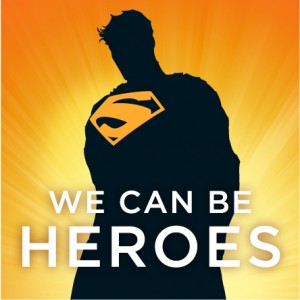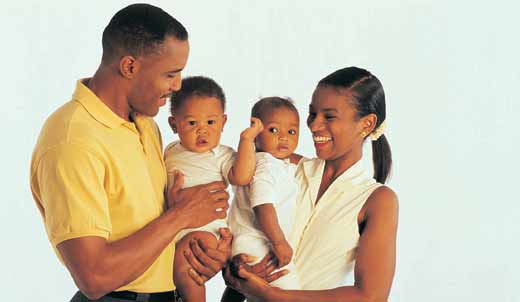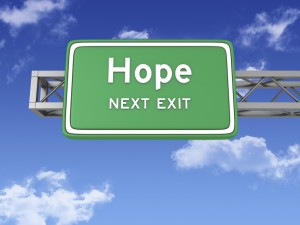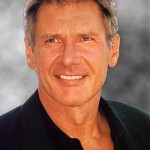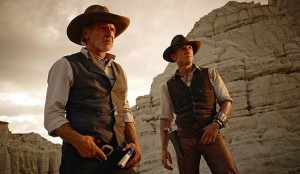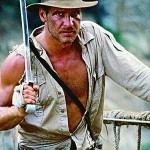 By Scott T. Allison and George R. Goethals
By Scott T. Allison and George R. Goethals
In Part 1 and Part 2 of this series, we introduced the concept of the Heroic Leadership Dynamic, which we define as a system of psychological forces that can explain the human tendency to generate heroes, benefit from them, and even become them. For as long as humans have been able to communicate through spoken language, they have told stories to each other. These stories, we suspect, were almost always about heroes.
In Part 2, we proposed that people are nourished by hero stories in at least two essential ways. These tales serve epistemic and energizing functions. The epistemic function refers to the wisdom that hero stories impart to us. The energizing function refers to the ways that hero stories heal us, inspire us, and promote personal growth. In Part 2 we described the epistemic or wisdom benefits of hero tales. Now we turn to the energizing benefits.
As early humans sat around fire at the end of the day, they were in need of more than just physical comfort. Yes, there was disease and injury, but undoubtedly there was also fear and despair. We suspect that people longed for some understanding of their miseries, some meaning behind the suffering they saw all around them. Storytelling provided a salve for their psychological wounds.
Hero stories served at least three important energizing functions for early man — and for contemporary humans, too. Hero stories heal psychic wounds, inspire us to action, and promote personal growth. Let’s look at each of these functions.
1. Hero Stories Heal Psychic Wounds
Hero stories serve a healing function in several ways. First and foremost, storytelling is community-building. For early humans, just the act  of gathering around fires to hear the stories established social connections with others. This sense of family or community was, and is, central to human emotional well-being.
of gathering around fires to hear the stories established social connections with others. This sense of family or community was, and is, central to human emotional well-being.
The content of hero stories also promotes a strong sense of social identity. If the hero is an effective one, he or she performs actions that exemplify the community’s most cherished values. The affirmation of a shared worldview, told vividly in storytelling, serves an important healing function.
Group storytelling is, in a sense, a form of group therapy. Many practicing psychologists believe that group therapy owes its effectiveness to group members’ willingness to share their own personal stories of hardship and triumph. When members share their success stories, hope is engendered. Many 12-step recovery groups, such as Alcoholics Anonymous, also promote healing through the open sharing of members’ stories.
2. Hero Stories Inspire Us
The classic mythic hero is often an underdog or ordinary person who is summoned on a journey full of extraordinary challenges. Our research on underdogs shows that we identify with them, root for them, and judge them to be highly inspiring when they triumph. Success on the hero journey requires courage and resilience, which are two of the most inspiring traits among the Great Eight characteristics of heroes.
According to Joseph Campbell, hero stories teach us that challenges and setbacks in life are to be embraced, not avoided. According to Campbell, obstacles help us 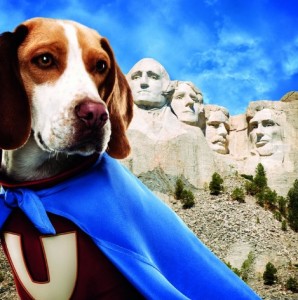 “learn to recognize the positive values in what appear to be the negative moments and aspects of your life. The big question is whether you are going to be able to say a hearty yes to your adventure.”
“learn to recognize the positive values in what appear to be the negative moments and aspects of your life. The big question is whether you are going to be able to say a hearty yes to your adventure.”
What Campbell means, of course, is that every human life mirrors the classic hero journey, and that this great adventure, even with its painful parts, can be a source of inspiration. The ups and downs of life are inter-connected, with the downs actually being necessary to produce the ups. This fact should encourage us all to trust that the main purpose of adversity is to transform our lives in ways that we cannot even imagine.
3. Hero Stories Promote Personal Growth
Psychiatrist Karl Stern once wrote that “the evolution of human growth is an evolution from an absolute need to be loved towards a full readiness to give love.” This developmental trend nicely summarizes the transformation that a mythic hero undergoes during the hero journey. At the outset of the journey, the hero is initially missing some important quality. It is often self-confidence, humility, or an accurate sense of one’s true purpose in life. The hero journey is always a journey toward vast personal discovery.
The discovery, moreover, is the basis of a character transformation that enables the hero to bestow a gift or boon to his or her community. This boon is the consummate heroic act that culminates the journey. Every good hero does  more than just enjoy a voyage of self-discovery. Good heroes use the gift of transformation to change the world for the better. This type of gift-giving is apparent in 12-Step recovery groups, which require members to undergo 11 steps of self-discovery followed by a 12th and final step requiring them to “carry the message” to others in need.
more than just enjoy a voyage of self-discovery. Good heroes use the gift of transformation to change the world for the better. This type of gift-giving is apparent in 12-Step recovery groups, which require members to undergo 11 steps of self-discovery followed by a 12th and final step requiring them to “carry the message” to others in need.
Perhaps Joseph Campbell said it best: “When we quit thinking primarily about ourselves and our own self-preservation, we undergo a truly heroic transformation of consciousness.”
Author Ken Wilbur believes that heroic transformation often begins with the hero first harboring an elitist view of the world and then eventually moving toward an egalitarian view. Famed psychologist Erik Erickson also saw the classic human trajectory as beginning with ego-constructing activities early in life and then moving toward a stage of generative activities late in life. When we are generative, we are giving to others what was given to us.
In short, the remarkable personal growth we witness in hero stories serves as a blueprint for our own growth journeys. We need only trust that the path of the hero is our own path toward redemption and growth. When we embrace that path, with all its inherent hurts and fears, we are charting our own course toward beautiful transformation. In this way, hero stories energize us toward self-improvement and selfless action.
– – – – – – – – – – – –
This series is based on a chapter in our book, Conceptions of Leadership, published by Palgrave Macmillan. The citation for this chapter:
Allison, S. T., & Goethals, G. R. (2014). “Now he belongs to the ages”: The heroic leadership dynamic and deep narratives of greatness. In Goethals, G. R., et al. (Eds.), Conceptions of leadership: Enduring ideas and emerging insights. New York: Palgrave Macmillan. doi: 10.1057/9781137472038.0011
Like this:
Like Loading...
 If they are motivated by money, would you put your life in their hands? The genuine heroes seek to help others; they don’t serve others to acquire material gain. True heroes are caring, compassionate individuals who want to save and improve people’s lives independent of external rewards.
If they are motivated by money, would you put your life in their hands? The genuine heroes seek to help others; they don’t serve others to acquire material gain. True heroes are caring, compassionate individuals who want to save and improve people’s lives independent of external rewards.